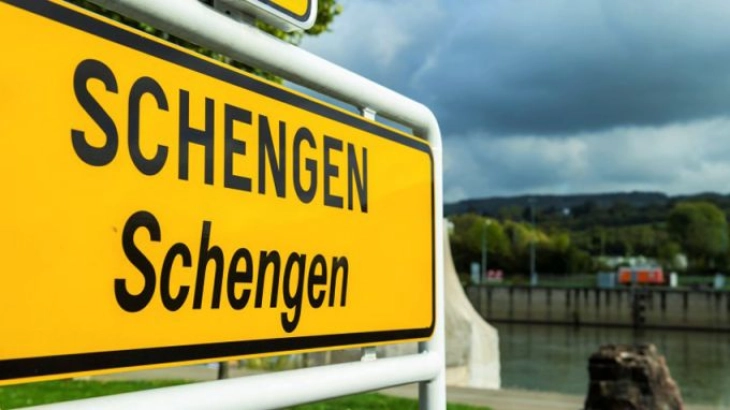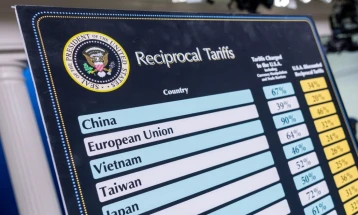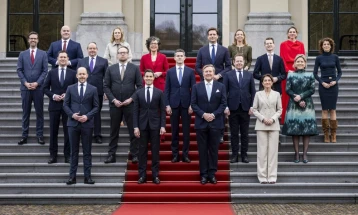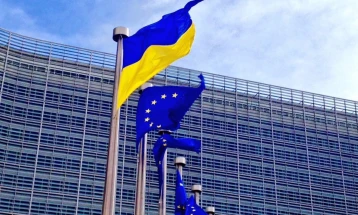Bulgaria, Romania to join Europe's border-free Schengen area in March
- Bulgaria and Romania received the go-ahead to join Europe's free-travel Schengen area starting in March 2024, the Spanish EU presidency announced late on Saturday.

Brussels, 31 December 2023 (dpa/MIA) - Bulgaria and Romania received the go-ahead to join Europe's free-travel Schengen area starting in March 2024, the Spanish EU presidency announced late on Saturday.
Air and maritime internal border controls between the two EU countries and other Schengen members will be lifted on March 31, while a decision on the end of land controls will be taken at a later time, the EU said.
Border checks between the 27 Schengen members are largely suspended allowing people to travel, work and live in another member country without visas or permits.
The European Commission welcomed the decision to admit Bulgaria and Romania.
"Congratulations to Bulgaria and Romania: this great achievement is possible thanks to your hard work, commitment and perseverance," Commission President Ursula von der Leyen said in a statement. "Thanks to you the Schengen area will become even stronger to the benefit of all EU citizens."
Romanian President Klaus Iohannis welcomed the "important step," saying that efforts would continue towards the lifting of checks on persons at internal land borders.
"Today #Schengen becomes stronger," said Bulgarian Deputy Prime Minister and Minister of Foreign Affairs Mariya Gabriel. "Committed to continue the work in 2024."
Bulgaria, Romania, Ireland and Cyprus are the only EU countries that are not part of the Schengen area, while non-EU states Iceland, Norway, Switzerland and Liechtenstein are members.
Efforts by Bulgaria and Romania to join had stalled for more than a decade since the commission first deemed the countries Schengen-ready in 2011, mainly due to resistance from Austria.
Vienna argued that too many illegal migrants were reaching Austria via the two countries. New members can only be admitted if all member countries agree.
The judiciary and the rule of law in Bulgaria and Romania, which joined the EU in 2007, had been under special scrutiny by Brussels due to rampant corruption and organized crime.
Because of these issues, fellow member countries had not been able to unanimously agree to admit the two countries to the EU's Schengen zone.
The commission, which repeatedly stressed that both countries fulfil all requirements to join Schengen, officially ended the monitoring in September.
European Council President Charles Michel congratulated the countries on the achievement.
"A long awaited step for Romanian and Bulgarian citizens to enjoy easier freedom of movement with the perspective of land transport to come," he said on X.
European Parliament President Roberta Metsola echoed Michel's words, adding "It was a long time coming. It makes our Union stronger and our people safer."
"I am very pleased that in 2024 air and maritime internal controls between Bulgaria and Romania and the other Schengen countries will become a thing of the past, after 12 years of negotiations," said Spanish Interior Minister Fernando Grande-Marlaska.
"We are thus continuing to build an ever wider and stronger area of free movement."
Spain still holds the rotating presidency of the Council of the European Union for one more day, before Belgium takes over on January 1.
Germany's Foreign Office also congratulated Bulgaria and Romania on Saturday evening. "Europe is moving closer together today," it said in a post on X.
German Chancellor Olaf Scholz welcomed the suspension of air and maritime controls as a first step. "Germany will continue to support the [countries'] full integration into the Schengen area," he wrote on X.







